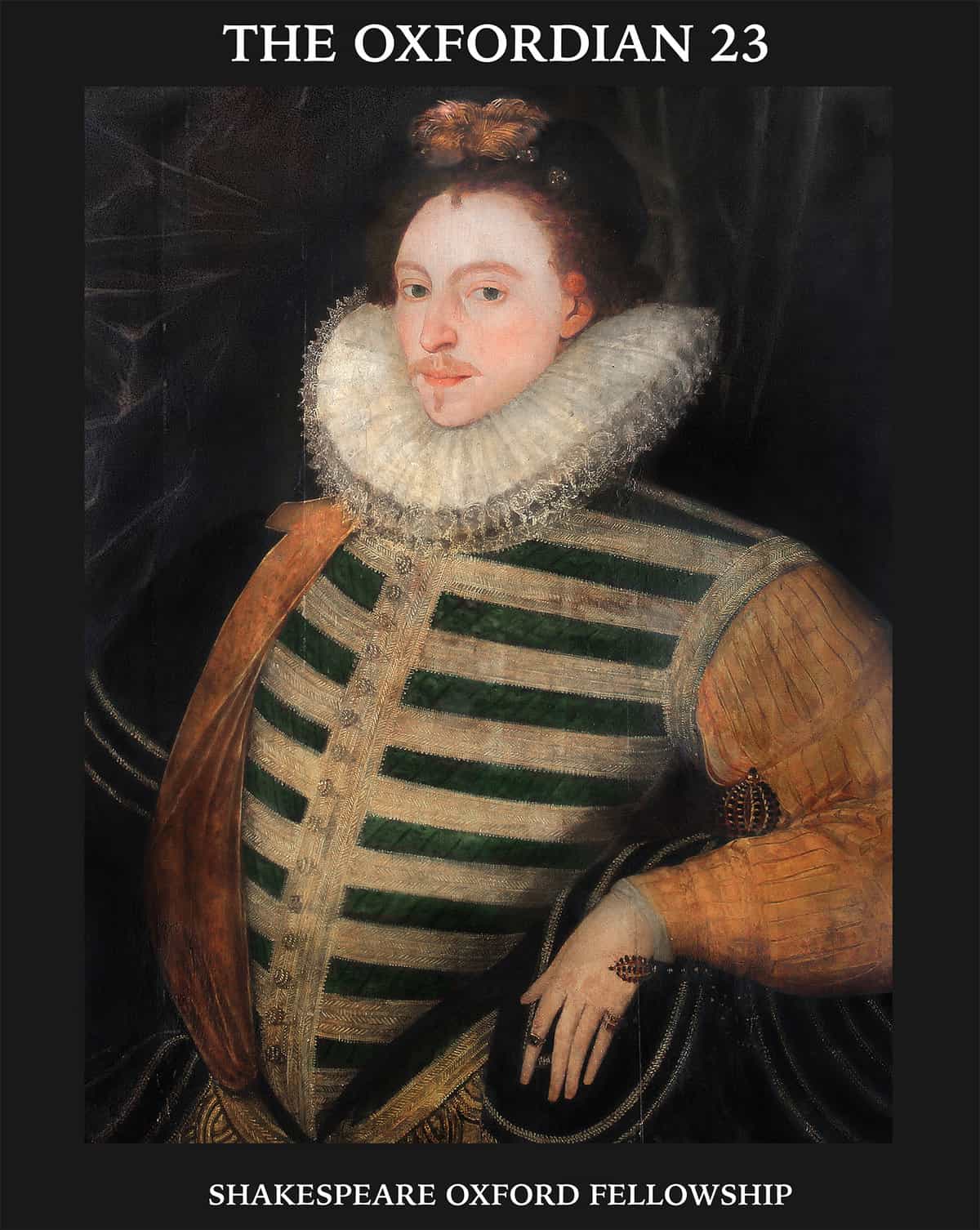The Oxfordian, Volume 23, Is Now Available
Largest-Ever Issue Contains Major New Discoveries

The largest issue ever published of the SOF annual peer-reviewed scholarly journal, The Oxfordian, has been published. It contains nine research papers and four book and movie reviews, and is available in print on Amazon for only $14.99. SOF members will receive free access to the entire issue in PDF form on our website and non-members may freely access two important articles (almost all contents of previous volumes are freely available there to all).
The new 373-page volume is 100 pages longer than the next-largest issue and offers several major new discoveries.
Chief among them is a monograph by doctoral candidate Matthew Hutchinson of Australia, who examines William Shakspere’s six signatures and concludes they were actually written by Jacobean law clerks.
Equally important is Gabriel Ready’s paper on the First Folio of 1623. Ready examines in depth the theory that the key impetus for publishing the Folio was the political crisis attendant on the Spanish Match policy of King James. The author shows how printing practices in Jacobean England and the intricacies of domestic and foreign politics call for a reappraisal of that hypothesis.
A point-counterpoint debate takes place between Ramon Jiménez and John M. Shahan on whether the dedication of Shake-speare’s Sonnets was written by Thomas Thorpe, the publisher, or Edward de Vere, 17th Earl of Oxford, as a double cryptogram.
Professor Richard M. Waugaman, M.D., investigates whether de Vere wrote the first English translation, published in 1620, of Boccaccio’s The Decameron. Elisabeth P. Waugaman, Ph.D., examines whether de Vere was the sitter in the portrait owned by Katherine Chiljan (auctioned by Christie’s) of an Elizabethan gentleman circa 1580.
Chiljan, for her part, answers this question: Which historical figure served as the real-life model for the character Prospero? Historian Frances Yates thought Dr. John Dee was the primary candidate. But Chiljan demonstrates that the Renaissance Italian politician, Lord Prospero Visconti of Milan, was the main source for Shakespeare’s portrayal of the magus in The Tempest.
Michael Hyde contributes new evidence that complements existing scholarship on the authorship of Troilus and Cressida — including Elizabethan theatre productions, medieval manuscripts of Chaucer’s magnum opus, The Canterbury Tales, and the use in the play by Oxford (de Vere) of his family motto.
The new issue also has reviews of three books on the Shakespeare authorship question: Shakespeare Revolutionized by James A. Warren, Renaissance Man: The World of Thomas Watson by Ian Johnson, and North by Shakespeare by Michael Blanding. In addition, Charles Boyle reviews the best adaptations of Shakespeare plays for the screen.
Finally, we discover in the archives of the Folger Shakespeare Library prima facie evidence that Edward de Vere (Oxford) did indeed serve on Queen Elizabeth’s Privy Council.
The Oxfordian was founded and edited during its first ten volumes (1998–2007) by Stephanie Hopkins Hughes. Volumes 11–16 (2009–14) were edited by Michael Egan and volumes 17–19 (2015–17) by Chris Pannell. The current editor, since 2018 (vol. 20), is Gary Goldstein.
The following volumes are now available in print on Amazon (vols. 17–22 cost only $9.99 each): No. 17 (2015), No. 18 (2016), No. 19 (2017), No. 20 (2018), No. 21 (2019), No. 22 (2020), and No. 23 (2021). Almost all contents of volumes before this latest issue are available for free to anyone in PDF form on our website.
Membership dues cover only a fraction of our budget, including all our research, preservation and programming. Please support the SOF by making a gift today!
Blue Boar Tavern: Wassail Q&A
Tuesday Dec. 17, 8pm E / 5pm P
Sign up below for event invites!
